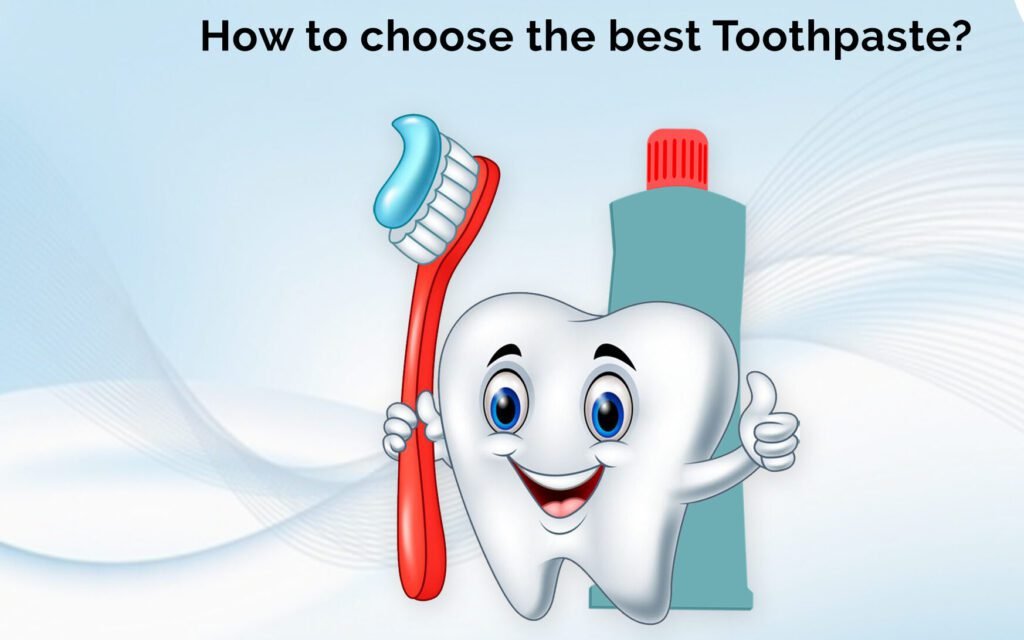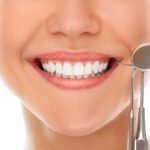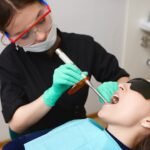Table of Contents
The Impact of Coffee on Teeth
Coffee, a popular morning beverage for many, can have a significant impact on the teeth due to its high acidity and dark pigmentation. Enamel, the protective outer layer of the teeth, is vulnerable to erosion from acidic beverages like coffee, leading to increased susceptibility to stains and discoloration. The presence of tannins in coffee further compounds this effect by promoting the adherence of pigmented compounds to the tooth surface, resulting in the gradual yellowing or browning of the teeth over time.

Additionally, the caffeine content in coffee can contribute to a decrease in saliva production, which plays a crucial role in neutralizing acids and maintaining oral health. Reduced saliva flow can hinder the natural cleansing process of the mouth, allowing stains from coffee to linger on the teeth longer and exacerbate discoloration. For those seeking to preserve the whiteness of their teeth, limiting the consumption of coffee or practicing good oral hygiene habits immediately after consumption can help mitigate the adverse effects on dental aesthetics.
Understanding Tooth Discoloration
Tooth discoloration can occur due to various factors, such as staining from foods and drinks, aging, tobacco use, poor oral hygiene, and certain medications. Extrinsic stains affect the outer layer of the tooth, known as enamel, and are often caused by dark-colored beverages like coffee, tea, and red wine. These stains can be effectively treated through professional dental cleanings and whitening procedures. On the other hand, intrinsic discoloration occurs within the tooth structure and may be a result of trauma, excessive fluoride exposure during tooth development, or certain medical conditions.

Understanding the specific cause of tooth discoloration is crucial in determining the most appropriate treatment approach. Different types of stains may require tailored solutions to achieve optimal results. Consulting with a dental professional for a comprehensive evaluation and personalized recommendations is essential in addressing tooth discoloration effectively. Additionally, maintaining good oral hygiene practices, including regular brushing, flossing, and dental check-ups, can help prevent and minimize the occurrence of tooth discoloration.
Tips for Maintaining White Teeth
Maintaining white teeth requires consistent effort and mindful habits. Firstly, brushing your teeth at least twice a day with fluoride toothpaste is essential for removing surface stains and preventing discoloration. Remember to brush gently in circular motions to effectively clean all tooth surfaces without damaging the enamel.
In addition to regular brushing, flossing daily is crucial to remove plaque and food particles between the teeth that can contribute to stains. Using a mouthwash containing fluoride can also help to strengthen enamel and protect against tooth discoloration. Furthermore, avoiding sugary and acidic foods can prevent tooth decay and yellowing of teeth, promoting a brighter and healthier smile.
Choosing the Right Toothpaste
When it comes to choosing the right toothpaste for maintaining optimal oral health, it is essential to consider the specific needs of your teeth and gums. Different toothpastes are formulated to address various concerns, such as sensitivity, whitening, tartar control, and cavity prevention. Selecting a toothpaste that aligns with your dental requirements can help enhance the effectiveness of your oral care routine. Consult with your dentist to determine the most suitable toothpaste for your individual oral health needs.

Furthermore, it is important to look for toothpastes that contain fluoride, a mineral known for its role in strengthening tooth enamel and preventing tooth decay. Fluoride has been extensively studied and proven to be effective in preventing cavities and maintaining overall oral health. Choosing a toothpaste with the appropriate level of fluoride can play a significant role in safeguarding the health of your teeth and gums. Remember to read the product labels carefully and opt for toothpaste that is approved by dental professionals to ensure that you are using a safe and effective oral care product.
The Importance of Regular Brushing
Regular brushing plays a central role in maintaining optimal oral health. It is essential in removing plaque buildup, food particles, and bacteria that can lead to gum disease and tooth decay. Brushing twice a day, in the morning and before bed, helps prevent the formation of cavities and keeps your gums healthy.
Furthermore, proper brushing techniques ensure that all surfaces of the teeth are effectively cleaned. Using a soft-bristled toothbrush and gentle circular motions, you can remove debris and plaque without causing damage to the enamel or gums. Neglecting regular brushing can result in a host of oral health issues, emphasizing the crucial need for this simple yet impactful daily routine.
Benefits of Using a Whitening Toothpaste
Whitening toothpaste is formulated to help remove surface stains from teeth, revealing a brighter and whiter smile. By incorporating whitening toothpaste into your oral care routine, you can effectively combat common culprits of tooth discoloration such as coffee, tea, and tobacco. These toothpastes typically contain mild abrasives or polishing agents that help gently scrub away stains, resulting in a rejuvenated appearance for your teeth.
| Benefits of Whitening Toothpaste | Description |
|---|---|
| 1. Removes Surface Stains | Helps remove stains caused by food, drinks, and smoking. |
| 2. Whitens Teeth Gradually | Contains abrasives or chemicals that whiten teeth over time. |
| 3. Prevents Future Stains | Some formulas include ingredients to prevent future staining. |
| 4. Improves Overall Appearance of Teeth | Enhances the appearance of teeth for a brighter smile. |
| 5. Convenient and Affordable Option | Offers an accessible and cost-effective whitening solution. |
| 6. Regular Dental Care | Contributes to maintaining good oral hygiene. |
| 7. Boosts Confidence | A brighter smile can increase self-confidence. |
| 8. May Contain Fluoride for Cavity Protection | Many whitening toothpaste varieties contain fluoride for cavity prevention. |
In addition to tackling stains, whitening toothpaste often includes ingredients like hydrogen peroxide or carbamide peroxide, which can help lighten the color of your teeth over time. These active ingredients work by breaking down stains and brightening the overall shade of your teeth. Regular use of whitening toothpaste, combined with proper brushing technique and routine dental visits, can contribute to maintaining a radiant smile and promoting optimal oral health.
How Diet Affects Tooth Color
A well-balanced diet plays a significant role in maintaining the natural whiteness of teeth. Certain foods and beverages can cause staining or discoloration of tooth enamel over time. Foods high in tannins, such as red wine and berries, have been shown to contribute to tooth discoloration. Additionally, acidic foods like citrus fruits and beverages like soda can weaken the enamel, making teeth more susceptible to staining.
On the other hand, incorporating more crunchy fruits and vegetables into your diet can help keep your teeth looking bright. Foods like apples, carrots, and celery act as natural abrasives that can help remove surface stains from teeth. Dairy products, such as cheese and yogurt, also contain calcium and phosphates that can strengthen enamel and protect against discoloration. By being mindful of the impact of diet on tooth color, you can make informed choices to support the overall health and appearance of your teeth.
Limiting Coffee Intake for Whiter Teeth
To maintain a brighter smile and prevent coffee-related stains on your teeth, it is essential to limit your intake of this popular beverage. Coffee contains high levels of chromogens, acidic compounds that can penetrate the enamel of your teeth and lead to discoloration over time. By reducing the frequency and quantity of coffee consumed, you can minimize the exposure of your teeth to these staining agents, helping to preserve the natural whiteness of your smile.
Moreover, limiting coffee intake not only benefits the appearance of your teeth but also contributes to overall oral health. Excessive coffee consumption can lead to enamel erosion, making the teeth more susceptible to decay and sensitivity. By cutting back on coffee consumption and practicing good oral hygiene habits, such as regular brushing and flossing, you can protect the integrity of your enamel and promote a healthier, brighter smile in the long run.
The Role of Water in Oral Health
Water plays a crucial role in maintaining good oral health. Staying hydrated is essential for stimulating saliva production, which helps to wash away food particles and bacteria in the mouth. Saliva also contains important minerals that can strengthen tooth enamel and protect against decay. In addition, drinking water can help to neutralize acids in the mouth, reducing the risk of cavities and enamel erosion.
Moreover, water is a calorie-free and sugar-free beverage, unlike many other popular drinks that can contribute to tooth decay and staining. By choosing water as your primary beverage, you can avoid exposing your teeth to unnecessary sugars and acids that can harm tooth structure. In combination with proper oral hygiene habits, including regular brushing and flossing, adequate water consumption can significantly contribute to the maintenance of a healthy and bright smile.
Avoiding Staining Foods and Drinks
Consuming certain foods and drinks can contribute to the discoloration of teeth, affecting the brightness of your smile. Beverages like coffee, tea, and red wine contain pigmented compounds that can stain the enamel of your teeth over time. Additionally, acidic drinks such as citrus juices and sodas can erode the enamel, making it more susceptible to staining. To minimize the impact of these staining agents, it is advisable to limit the consumption of such beverages and rinse your mouth with water afterwards to help wash away any residue.
Similarly, foods like berries, tomato-based sauces, and balsamic vinegar contain chromogens that can adhere to the teeth and cause staining. Another culprit is sugary snacks and drinks, as bacteria in the mouth feed on sugar and produce acids that can weaken the enamel and lead to discoloration. By being mindful of your diet and opting for teeth-friendly options, you can help maintain the whiteness of your teeth and preserve your oral health in the long run.
The Benefits of Regular Dental Cleanings
Regular dental cleanings play a crucial role in maintaining optimal oral health and preventing a myriad of dental issues. During these cleanings, dental professionals meticulously remove plaque and tartar buildup, which can cause gum disease, cavities, and bad breath if left unchecked. Additionally, cleanings offer an opportunity for early detection of potential problems, allowing for prompt intervention and treatment.
Furthermore, regular dental cleanings contribute to overall well-being by reducing the risk of systemic diseases such as cardiovascular issues and certain types of cancers that have been linked to poor oral health. Research indicates that individuals who undergo routine cleanings are more likely to maintain healthier teeth and gums throughout their lives, leading to improved quality of life and increased confidence in their smiles. By prioritizing regular dental cleanings as part of a comprehensive oral care routine, individuals can enjoy the lasting benefits of a healthy and vibrant smile.
Professional Whitening Options
Professional teeth whitening options are a popular choice for individuals seeking a brighter smile. Dentists offer in-office whitening treatments that can significantly lighten tooth discoloration caused by various factors such as coffee consumption, aging, and certain foods. These in-office procedures utilize high-concentration bleaching agents that yield quick and noticeable results, giving patients a confidence boost with their rejuvenated smiles.
Another option for professional teeth whitening is at-home treatments supervised by a dentist. Customized whitening trays filled with a prescribed bleaching gel can be worn daily for a specified time to gradually lighten teeth. While this method may take longer to achieve desired results compared to in-office treatments, it provides convenience and flexibility for those who prefer whitening their teeth in the comfort of their own homes under professional guidance. It is essential to consult with a dentist to determine the most suitable whitening option based on individual needs and oral health conditions.
Natural Remedies for Whiter Teeth
Looking for natural remedies to achieve a brighter, whiter smile? Look no further than your kitchen pantry. Baking soda is a commonly used ingredient in DIY teeth whitening recipes. Its mild abrasive properties can help scrub away surface stains on teeth, revealing a brighter smile. However, it’s essential to use baking soda sparingly and not as a daily replacement for your regular toothpaste, as excessive use can wear down enamel over time.
| Natural Remedies | Description |
|---|---|
| 1. Baking Soda | Acts as a mild abrasive to help remove surface stains from teeth. |
| 2. Hydrogen Peroxide | Diluted hydrogen peroxide can act as a bleaching agent to whiten teeth. |
| 3. Oil Pulling | Swishing coconut oil or sesame oil in the mouth may reduce bacteria and stains. |
| 4. Apple Cider Vinegar | Contains acetic acid, which may help remove stains, but use cautiously as it can erode tooth enamel. |
| 5. Strawberries | The malic acid in strawberries may help remove surface stains from teeth. |
| 6. Activated Charcoal | May help absorb stains and toxins from teeth, but its effectiveness is debated. |
| 7. Eating Crunchy Fruits and Vegetables | Foods like apples, carrots, and celery can help remove surface stains by scrubbing teeth. |
| 8. Brushing with Turmeric | Turmeric contains curcumin, which may have whitening properties. |
Another natural remedy worth trying is oil pulling with coconut oil. This ancient practice involves swishing coconut oil around in your mouth for about 15-20 minutes. The oil supposedly helps to lift stains and bacteria from teeth and gums. While there is limited scientific evidence to support its effectiveness, many people swear by this method for achieving whiter teeth. Remember, though, that oil pulling should not replace your regular brushing and flossing routine as it is not a substitute for proper oral hygiene practices.
Protecting Enamel from Coffee Stains
Coffee is a popular beverage enjoyed by many, but its impact on dental health, specifically enamel discoloration, is a concern for dental professionals. The dark pigments present in coffee, known as tannins, can adhere to the enamel surface over time, leading to unsightly stains. Enamel, the outermost layer of the teeth, is vital for protecting the inner structures from decay and damage. When coffee stains accumulate on the enamel, they can compromise its integrity and affect the aesthetic appearance of the smile.
To protect enamel from coffee stains, individuals can employ various preventive measures. One effective strategy is to consume coffee through a straw to minimize direct contact with the teeth. Additionally, rinsing the mouth with water after drinking coffee can help wash away the pigments and reduce their adherence to the enamel surface. Regular dental cleanings and professional whitening treatments can also aid in removing stubborn coffee stains and preserving the health and appearance of the teeth.
The Importance of Consistent Oral Care
Consistent oral care is the cornerstone of maintaining good dental health. By establishing a routine that includes brushing at least twice a day, flossing daily, and using mouthwash, individuals can prevent the buildup of plaque and bacteria that can lead to cavities and gum disease. Research has shown that those who adhere to a regular oral care regimen are less likely to experience oral health issues such as tooth decay and periodontal disease.
In addition to at-home care, regular dental check-ups are essential for identifying and addressing any potential problems early on. Dentists are trained to detect issues that may not be visible to the naked eye, such as early signs of decay or gum disease. Professional cleanings can also remove plaque and tartar buildup that cannot be fully addressed through regular brushing and flossing alone. By consistently visiting the dentist for check-ups and cleanings, individuals can ensure that their oral health is being maintained at an optimal level.
How often should I brush my teeth to maintain white teeth?
It is recommended to brush your teeth at least twice a day, in the morning and before bedtime, to maintain white teeth.
Can using a whitening toothpaste alone help whiten my teeth?
While whitening toothpaste can help remove surface stains and maintain white teeth, it is also important to visit your dentist regularly for professional cleanings and consider other whitening options for more significant results.
How does water play a role in oral health and teeth whitening?
Drinking plenty of water helps wash away food particles and bacteria that can lead to tooth discoloration. It also helps keep your mouth moist and supports saliva production, which is essential for maintaining a healthy smile.
Are there any natural remedies I can use to whiten my teeth?
Yes, natural remedies such as oil pulling with coconut oil, brushing with baking soda, or using activated charcoal can help remove surface stains and whiten teeth. However, it is important to consult with your dentist before trying any natural remedies to ensure they are safe for your oral health.




